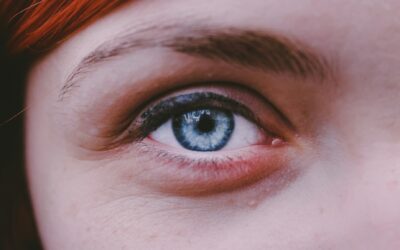Dry eye disease is one of the most common ocular conditions affecting people of all ages. Many individuals experience the uncomfortable symptoms of irritation, redness, burning, and grittiness, and treating these symptoms is not easy. To effectively manage dry eye disease, you must first understand the underlying cause. For most people, dry eyes are caused by a condition known as Meibomian gland dysfunction. Continue reading to learn about how Meibomain gland dysfunction effects your eyes.
What is Meibomian Gland Dysfunction?
Meibomian gland dysfunction, or MGD, is the leading reason for dry eyes. It is caused when the millions of glands that line our eyelids are not properly working. These glands, called the Meibomian glands, are responsible for releasing a clear oil into our tear film. The oil, also referred to as meibum, is what keeps our tears stable and prevents them from immediately evaporating from the front surface of the eye. Without the oil layer of the tear film the front of the eye is left unnourished and unprotected, and symptoms such as burning, grittiness, or redness will arise.
Causes of Meibomian Gland Dysfunction
The Meibomian glands can become dysfunctional for a wide variety of reasons. Most commonly, Meibomian glands become less effective over time and MGD arises as we age. They can also be blocked or clogged by debris, makeup, or flaky skin. The glands may become inflamed due to underlying autoimmune conditions, such as lupus, rheumatoid arthritis, or Sjogren’s syndrome, or inflammation can arise due to another eye condition known as blepharitis. Contact lens wear may affect the glands of some individuals and increase the risk of MGD. Ocular allergies or infections can also prevent Meibomian glands from working properly. It is important to take a good look at overall health and consider all the potential causes that could be contributing to Meibomian gland dysfunction when deciding how to treat the condition.
Medical Treatment of Meibomian Gland Dysfunction
Treating MGD requires a long-term and chronic approach. One of the most important aspects is improving the health of the Meibomian glands. In some cases, this can easily be done by performing nightly lid scrubs and warm compresses. There are many commercially-prepared products, from lid wipes to heat masks, that if used routinely, can help improve the health of the eyelids. If your doctor determines that your case of MGD is moderate to severe, they may prescribe a short course of oral antibiotics, topical steroids, or medicated ointments to address the underlying cause and improve the comfort of your eyes. Most people who are affected by Meibomian gland dysfunction rely on lubricating artificial tears to help improve the symptoms associated with MGD and dry eyes disease. Some artificial tears are “lipid based” and are specifically designed to help improve the health and comfort of the eye’s surface in people affected by MGD.
Meibomian gland dysfunction can be diagnosed during a routine eye examination, and can be treated and followed by your optometrist. Your doctor can look closely at your eyelids and Meibomian glands to determine what may be contributing to your symptoms, and they can help formulate the most appropriate treatment plan for you based on their exam findings.





